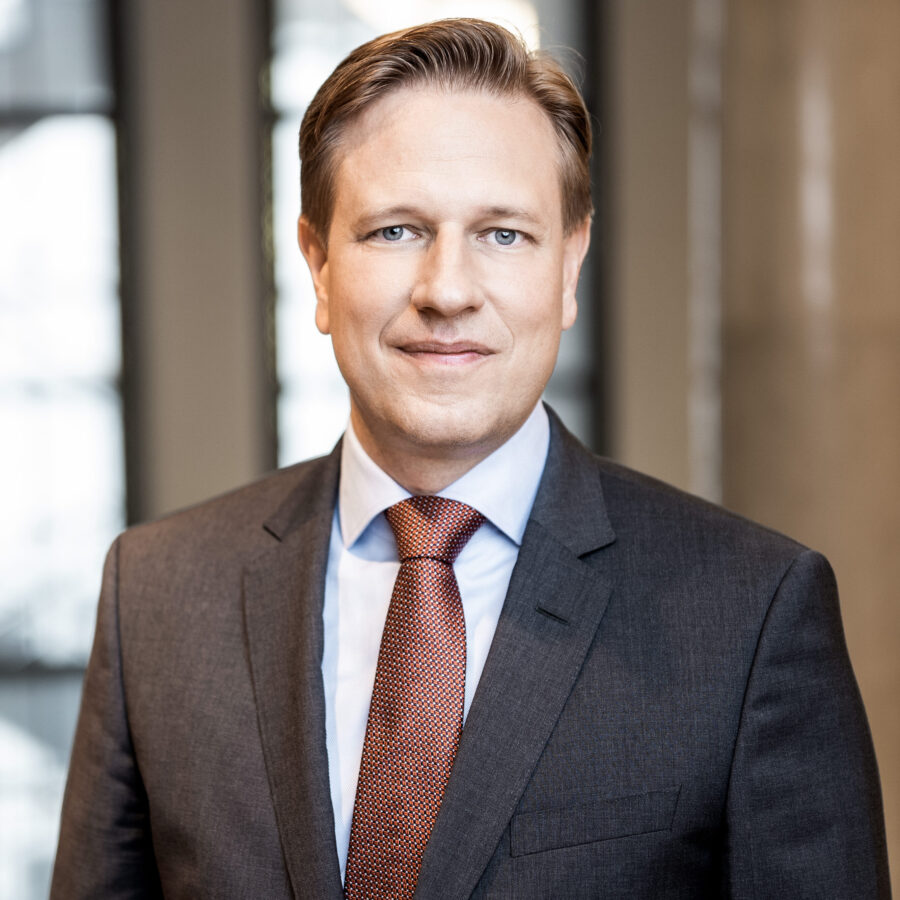Berenberg Megatrend Days 2023
Participants were first welcomed by Klaus Naeve, Co-Head of Wealth and Asset Management and Head of Sales. Then, Matthias Born, Co-Head of Wealth and Asset Management and Head of Investments, delivered an opening speech that got straight down to business. He noted that Berenberg identified three megatrends several years ago: demographic and social change, the green revolution (the transition to green energy) and “techceleration”, i.e. rapid technological progress. All of these factors will be significant for decades to come, affect all areas of our lives and are triggering radical changes at global level, he added. At the same time, these megatrends are providing momentum for many companies. But, Born went on, “they are not the only drivers. A key factor for all companies is still how innovative they are.” Born believes that megatrends are “worthless” if you cannot find the companies that benefit from them.
Megatrends provide the background music for underlying structural growth - but they are not the all-important driver.
Matthias Born, Head of Investments und CIO Equities Berenberg
The best opportunities here can be seen in the technology and healthcare sectors, where long-term investment performance is higher than average. Born noted that Berenberg portfolios such as the European Focus, Global Focus and the European Small Cap Fund are highly weighted in tech and health care companies: “These sectors usually make up about half of the portfolio for these funds.” The rapid development of artificial intelligence could accelerate growth at many companies in these industries in the future, he added. The potential is certainly there, as AI could significantly boost productivity. “But we have to be careful,” warned Born, “and clearly differentiate between companies that use AI only as a buzzword and those that really benefit from it.“
Essential for the success of any company are innovation, sustainable competitive advantages and an excellent management team with a long-term growth strategy. Stockpicking, i.e. the targeted selection of individual stocks, therefore remains the key to successful investing.
Peter Kraus, Head of Small Cap Equities Berenberg
Small cap expert Peter Kraus made it clear that Berenberg fund managers do not simply follow current market trends: “Of course, it’s always good to invest in growth markets, but you should take a nuanced approach. Our core business at Berenberg is the careful analysis of company specifics.” Kraus used the example of two tech companies whose prices have gone in completely different directions in the last decade to show how a growing sector does not in and of itself guarantee long-term investment success. One returned investors a profit of about 380%, while the other generated a loss of more than 30% – with Kraus describing the price performance as resembling “a roller coaster at Oktoberfest”.
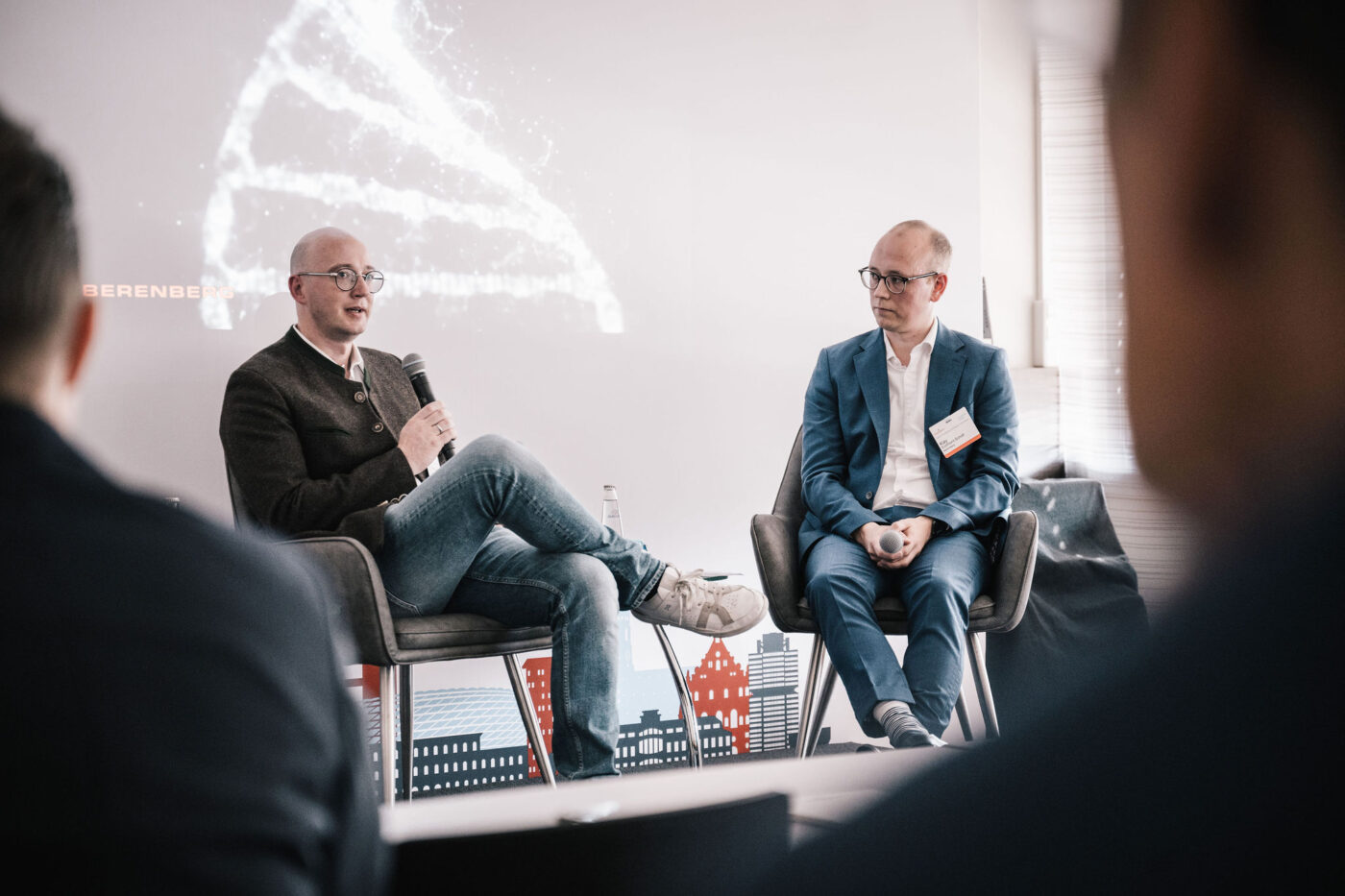
Fireside Chat - Kay Eichhorn-Schott, Berenberg und Philip Boehme, Just - Evotec Biologics
Just - Evotec Biologics partnered with pharmaceutical company Sandoz this year. "Sandoz is developing a significant part of its pipeline in biosimilars with Just Evotec. Why?" asks Kay Eichhorn-Schott. "Because we are producing biosimilars from scratch," says Philip Boehme. "It's like Ford's Model T, where an assembly line was used for the first time. We're doing something similar in the biopharmaceutical field now."
Berenberg fund manager Kay Eichhorn-Schott then went on to discuss how AI is changing the biotech and pharma sector. He first underscored the main problem in drug development: “It is expensive, takes a long time and the risk of failure is very high.” Eichhorn-Schott discussed potential AI solutions with Philip Boehme. A graduate in medicine and chemical engineering, Boehme took an early interest in how medical advances can be made available to patients more quickly and what support digital technologies might provide. He now holds an executive position at Just - Evotec Biologics. As part of Evotec, the company focuses on technologies that speed up the discovery and development of biopharmaceuticals and considerably reduce production costs. To do so, it partners with other firms such as the pharmaceutical group Sandoz.
When asked about Evotec’s recipe for successful AI-supported drug research and development, Boehme said: “What matters is the combination of access to patient data, skilled scientists who put the data in the right context and AI algorithms to efficiently analyse and interpret the data.” Collaboration with more than 200 partners also gives Evotec a deeper insight into many treatment areas, setting the company apart from most biotech firms. Boehme does not believe that AI algorithms alone provide any competitive advantage.
AI is already being used to understand disease patterns faster and better and to develop promising drug candidates. AI can make a major contribution to increasing probabilities of success and reducing development costs.
Kay Eichhorn-Schott, Portfoliomanager Berenberg
Fireside Chat - Martin Hermann, Berenberg und Christian Klimmek, Google
"In Europe, we are probably only at the beginning of a long-term growth trend," Christian Klimmek answered Martin Hermann's question on how he sees the prospects in the cloud computing business area. "Many companies first have to modernise the management of their data and get rid of legacy data in order to be able to use it for AI applications and especially for generative AI."
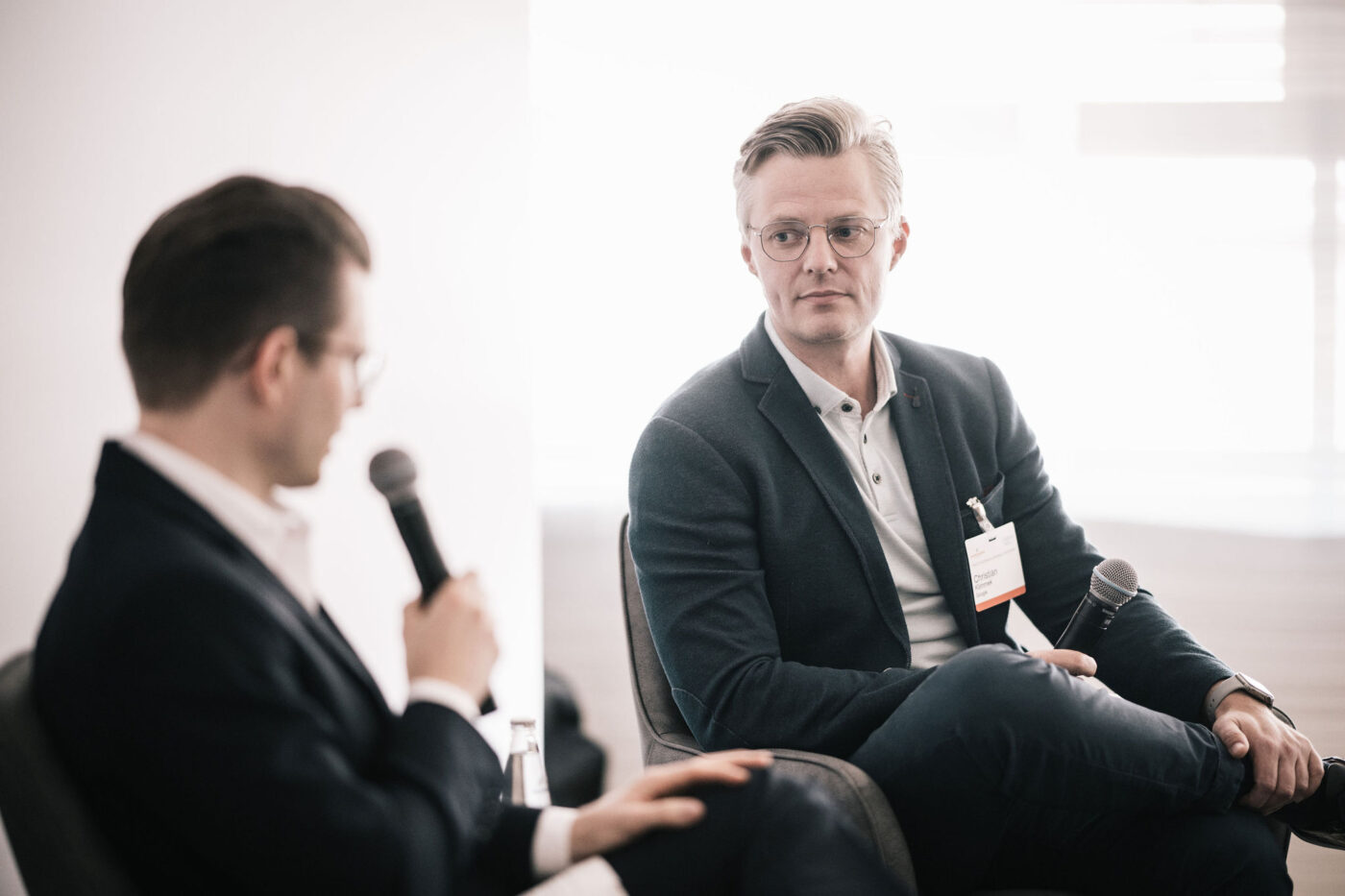
Berenberg portfolio manager Martin Hermann spoke with Christian Klimmek, customer engineer at the tech giant Google, about how artificial intelligence is changing cloud computing and software. Hermann began by noting how many potential applications artificial intelligence offers for thousands of companies. Many are currently working to understand and use generative AI, the technology behind the well-known ChatGPT chatbot, said Klimmek. But the biggest problem is data accessibility, he went on. “Companies first need to move away from their data silos,” argued Klimmek. “They need to finish their data journey before they can begin their AI journey.” In view of this, cloud solutions such as those offered by Google are increasingly important for many companies.
Cloud providers offer many relevant infrastructure services for AI. In addition, software applications with a proprietary data base and with strong workflow improvements through AI should benefit from high demand.
Martin Hermann, Portfoliomanager Berenberg
Fireside-Chat Peter Kraus & Friedrich Pehle
Fireside Chat - Peter Kraus, Berenberg und Friedrich Pehle, 2G Energy AG
Portfolio manager Peter Kraus wanted to know from Friedrich Pehle in the Fireside Chat how he sees the competitive environment for 2G Energy in the coming years. Pehle answered: "We are not very afraid of competition. This is because we are operating in a 30-year-old, mature market. In the past years, competitors have always left the field, but no new ones have entered."
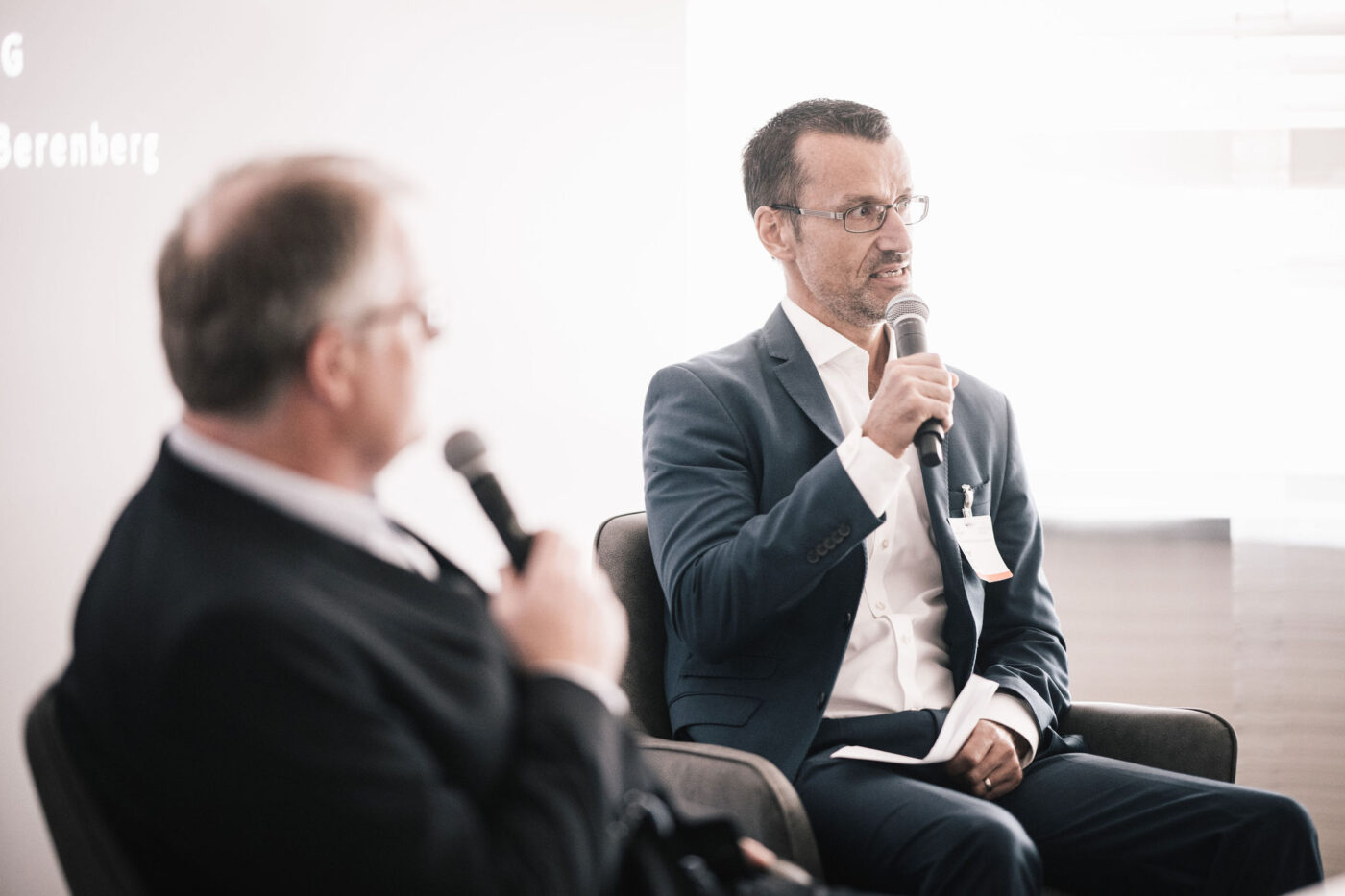
Peter Kraus took a critical look at the status of the green energy transition in a discussion with Friedrich Pehle, CFO at 2G Energy. The company is one of the world’s leading manufacturers of combined heat and power plants, which are used for the decentralised generation and supply of electricity and heat. Pehle thinks that electricity in Germany and Europe could become a scarce resource. While Germany has high ambitions for the transition to green energy, the country is well behind schedule when it comes to practical implementation. Electricity consumption continues to rise and existing power plants are being decommissioned. In times of uncertain grid power supply, decentralised energy provision solutions are more and more interesting. This opens up opportunities for 2G. For example, Pehle thinks the company’s profit could grow by well over 10% a year (plus inflation) in the future. He is not worried about new competition. “We don’t expect Chinese machinery to suddenly come onto the European market. After all, the technology involves certain requirements in terms of service.”
The energy turnaround requires small, flexible and highly efficient solutions such as combined heat and power plants.
Peter Kraus, Head of Small Cap Equities Berenberg
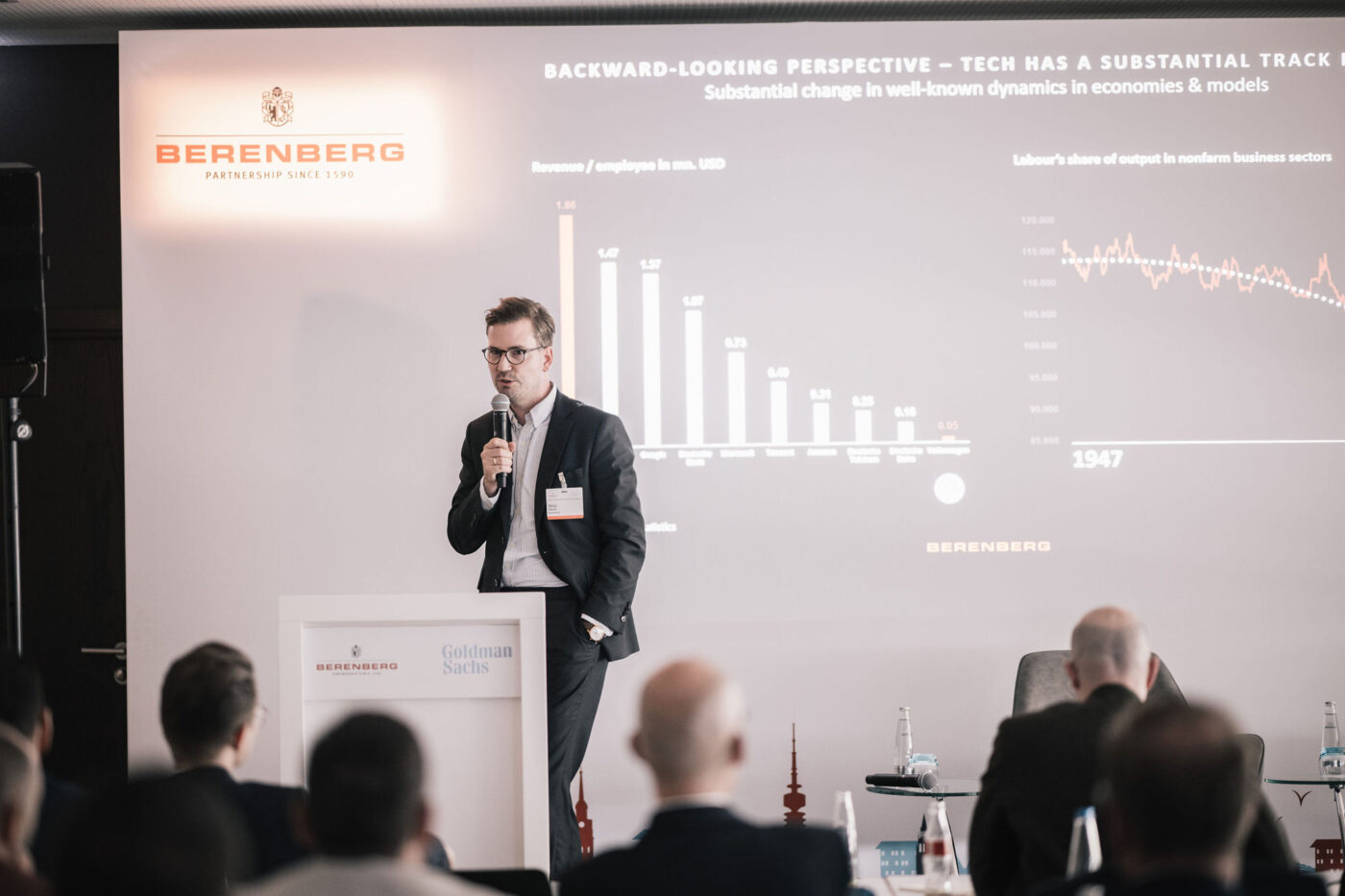
Nico Baum, Head of Innovation & Data at Berenberg, then talked about how artificial intelligence is affecting the asset management sector and what applications and solutions Berenberg is working on. He stressed that artificial intelligence and alternative data could be integrated into business processes far more quickly than many currently assume. “Smartphones penetrated the market in not even a year,” said Baum. Artificial intelligence will also change the asset management sector, and Berenberg wants to play an active role in shaping this development from the very beginning. For example, the technology is already widely used in currency hedging and long-short strategies. The company is also working with Google to develop a large language model to help discretionary fund managers make investment decisions. A chatbot will be fed data from many sources of information and allow portfolio managers to easily access this data. Finally, the Sentiment Fund was launched several years ago, a global macro strategy managed on the basis of alternative market sentiment data.
For smartphones, market penetration took less than a year.
Nico Baum, Head of Innovation and Data Berenberg
We're already looking forward to the Berenberg Megatrend Days 2024!
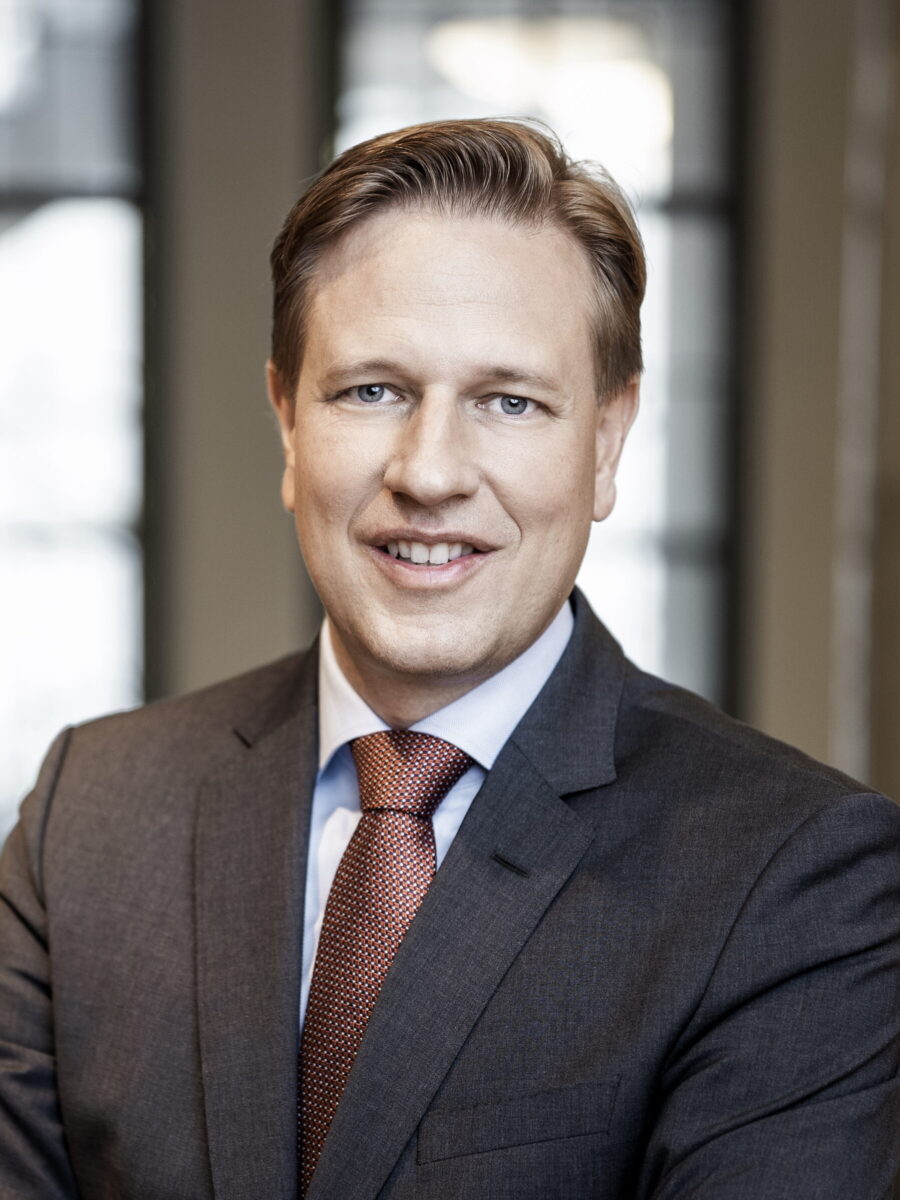
Matthias Born
Matthias Born has been CIO Equities since 2017 and Head of Investments of Wealth and Asset Management since 2019. He started his career in 2001 at Allianz Global Investors (AGI), where he managed portfolios for European Small Caps, European growth stocks and German equities from 2002 to 2017. In his 16 years at AGI, he has built two very successful equity franchises and was responsible for client assets in the double-digit billions. Matthias Born has an excellent track record over two decades and received several awards for his outstanding and consistent performance. He studied at the University of Wuerzburg and holds a degree in Business Administration.
These were the Berenberg Megatrend Days 2023
Photos: Dennis König Photographie | www.koenig-photographie.de































